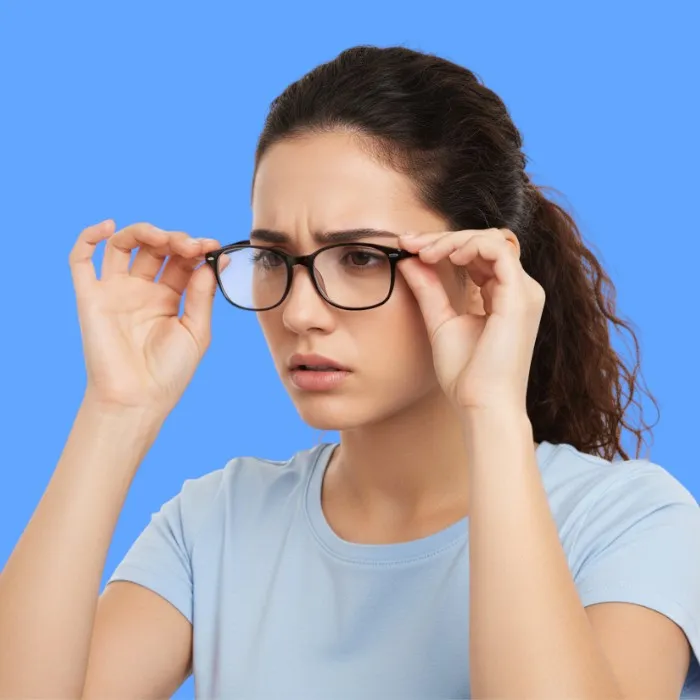what is myopia?
Myopia is a common visual condition that makes a person see nearby objects clearly while distant ones appear blurry and undefined.
This happens when the shape of the eye is abnormal, causing light to focus in front of the retina instead of directly on it, leading to poor distance vision.
what are the causes of myopia?
There are several common causes of this condition, including:
- Genetic factors if one parent is affected.
- Elongation of the eyeball beyond normal.
- Increased curvature of the cornea or lens.
- Excessive use of electronic devices.
- Reading for long periods without breaks.
- Limited exposure to natural outdoor light.
- Premature birth or inherited eye disorders.
- Intensive education or high academic load.
what are the common symptoms of myopia?

There are several common symptoms that patients may experience, such as:
- Blurry vision when looking at distant objects.
- Needing to sit close to the TV or board.
- Holding books close to the eyes while reading.
- Frequent headaches due to eye strain.
- Squinting to try to improve vision.
- Difficulty driving, especially at night.
- Decline in academic or work performance.
when should you see a doctor?
It is advised to consult a doctor promptly if any of the following occur:
- Persistent blurry vision despite wearing glasses.
- Feeling pain or pressure inside the eye.
- Seeing black spots or light flashes in vision.
- Sudden loss or severe blurring of vision.
- Rapid changes in vision over a short period.
- Family history of retinal issues or glaucoma.
what are the treatment options for myopia?
There are several treatment options for this condition, including:
- Wearing prescription glasses to correct refraction.
- Using contact lenses depending on the case.
- Laser surgeries like LASIK or Femto-LASIK.
- Night lenses to temporarily reshape the cornea.
- Low-dose atropine drops for children.
- Vision therapy techniques to improve focus.
- Reducing eye strain using the 20-20-20 rule.
can myopia be cured?
Myopia is not fully curable in most cases, but it can be managed and significantly improved.
Recovery depends on the severity of the condition, the patient's age, and adherence to treatment and preventive advice.
what are the prevention tips for myopia?
There are several tips to help prevent the condition, such as:
- Reducing screen time on electronic devices.
- Taking regular breaks during reading or work.
- Spending more time outdoors.
- Using proper lighting while studying or reading.
- Doing regular eye checkups, especially for children.
- Avoiding reading in poor lighting conditions.
- Following a diet rich in eye-friendly vitamins.
- Minimizing visual stress in daily activities.
what are the possible complications of myopia?
Some complications may occur if treatment is neglected, such as:
- Retinal detachment due to eye elongation.
- Myopic macular degeneration.
- Increased eye pressure (glaucoma).
- Development of cataracts.
- Gradual loss of central vision.
- Visual field distortions.
- Constant need to change glasses.
- Poor daily performance due to unclear vision.
frequently asked questions about myopia
Is myopia hereditary?
Yes, genetics play a major role.
Can myopia improve over time?
Rarely, but it may stabilize in some cases.
Do glasses cure myopia?
No, they only correct vision.
Is laser surgery suitable for everyone?
No, it depends on age and severity.
article summary
Myopia is a common visual disorder that affects distance clarity and often appears during childhood or adolescence. Its causes range from genetics to environmental factors and it can be treated with glasses, lenses, or laser depending on the case.
Prevention starts with a visually healthy lifestyle, and regular eye exams help in early detection and avoiding complications.